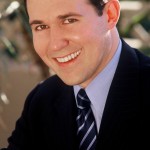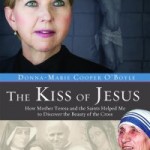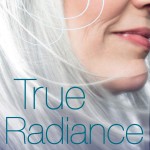Today, we conclude my interview with Raymond Arroyo about his final book on Mother Angelica’s life. Enjoy Part 2! (And if you missed it, here’s Part 1.)
Lisa: Mother Angelica was amazing. On page 97, you recall that during a demonic attack, she was deep in prayer, then said the words of the Sign of the Cross aloud. Suddenly it all passed and she fell asleep. ASLEEP. I would have had insomnia for years after that!
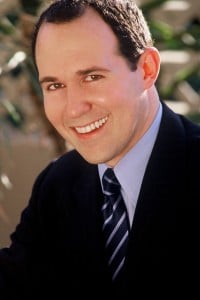
to her many times. It’s not uncommon to suffer demonic attack at the end of a holy life. It’s the part at the end where the devil wants to break you.
The most supernatural experience she had was when they’d bring the Eucharist into her room. You could see her welcoming Christ into her loving embrace, her yearning for the spouse she served all those years. It was intense, as intense as anything else we witnessed. I thought all of that needed to be captured. It was an honor to have access to her and the sisters, and see a lot first hand. I know the story will go on.
Raymond: The work I do does draw spiritual interference.
Since I was a child, I have had a very strong sensibility about those things. There are people I avoid or gravitate towards. It’s a sensation, an intuition. And usually I’m right, scarily.
The spirit is important and–what’s that great Flannery O’Connor line?
There’s an embarrassment of the supernatural, today.
I write about the action of grace in territory largely held by the devil.
Lisa: Great line. What question do you wish people would ask you?
Raymond: The question I imagine they would ask is, “How did Mother Angelica change your life and what did she teach you?” I was reluctant to write that chapter, though I realized it had merit. It revealed so much about her humanity and mine. In fact, our relationship almost ended before it started! We had our little thing, but we loved each other more, as a result. We had a public spat in front of 25 employees. You could say we went through a little back-and-forth, but it deepened our friendship. And, coming out of that, I think we learned to love and trust each other in a way we didn’t before.
One of her sisters read the book and said, “I think you knew her better than we did! She didn’t share with us the things she shared with you!” We had a very close relationship; it’s true. She did share immense things with me. Going back and listening to our interviews starting in 1999, she actually told me what was going to happen in her life.
You see in the book that she was really driven. It was very important to her being in God’s will at all times. It was the centerpiece of her spirituality, and the witness of her last phase is about the power of suffering offered up to God.
She always said that our suffering only has meaning if we unite it in love to the suffering of Christ. And I think she’s right; and she not only talked a good game, she showed the world how it’s supposed to look. That’s why this book is so important and why I decided to do it. It’s in a different key, this story. It’s a quieter piece but no less dramatic, and the stakes are really high. I wept over almost every page.
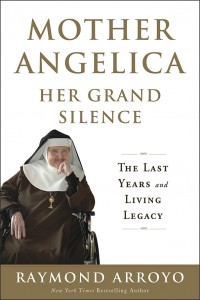 Lisa: I found reading the book very powerful. You don’t write in a manipulative, emotional way; the work is very factual and direct. And yet, I was deeply moved.
Lisa: I found reading the book very powerful. You don’t write in a manipulative, emotional way; the work is very factual and direct. And yet, I was deeply moved.
Raymond: You can feel it, but most of the time, I can’t tell whether it will work. You make choices when you write a life story; you leave a lot out. I left a lot out of the first biography, so I restored a few things, here. But in writing this new book, I had to be judicious and careful in some parts of the telling. Mother told me to write her full story–not everybody else’s. It’s not about her network or her order; it’s about her. It was important that I keep her in focus the whole time. It’s a challenge when you’re dealing with someone who is very infirm and, in most cases, an invalid.
The Holy Spirit wrote a good part of this book. In the weeks after she died, I said, “God, you’re going to have to write this.” After hours on talking about Mother on TV (and barely holding it together), I was writing and editing this at night. I couldn’t do it without my wife’s support–who is just a saint.
But it’s been an incredible journey, for me to tell Mother’s story, as her friend, as her journalist, and as her biographer; it’s a complete gift. I feel that one of the big to-dos on my life list is done; and that’ a relief and a real joy, because you know when things end, other things begin!
Lisa: What impressed you most about her?
Raymond: The great mark, beyond her suffering in building the network, the most powerful thing–to me, as her friend–was that she resigned from her network. She walked away, in 2001, before her stroke. The fact that she so easily said, “I’m leaving and going back to my cloister” is so impressive.
Unlike most media moguls, she walked away, because it was never about the network. Look at Johnny Carson, Larry King, Ted Turner etc.–they white knuckle the things they built. But not mother. When her work was done, when God called her to something else, she dropped it like a hot rock.
You know it’s peculiar: I’ve probably read more of her words, collected them, edited and reworked them than anybody. But it’s not her words that linger: it’s the example. It’s watching her give up even her will.
Lisa: You mention in Chapter 6 that she communicated the total death of self that God asked of her, in a poignant and intimate moment of friendship.
Raymond: It was such a gift. One day she took my hand. I would always know when she needed to say something. She would get very quiet, focus, and grab my hand. She said, “At the end…at the end…at the end…He takes everything, everything…” and then she smiled a resigned smile.
She just wanted to tell me that. She wanted me to understand that she was okay. And she gave God everything: gave him her voice, her will, her work, her life, and he has used it all in such unbelievable ways.
Lisa: So, after all these years, what is the best part of telling Mother’s story, for you?
Raymond: I am really delighted that people will now get the whole story. I miss Mother a lot, but this is a chance for those who never met her–and many who did– to visit with her one last time. It’s a chance to consider her last journey and how it sheds light on our own.
End
Purchase the book here.

